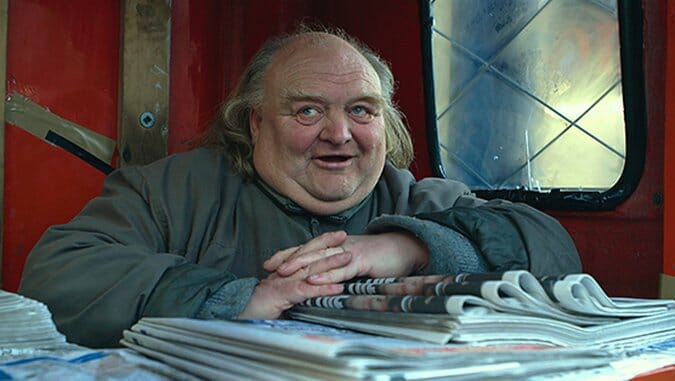Pulp: A Film About Life, Death & Supermarkets

In theory, the story about a one-night comeback of a band born in the late ’70s, who struggled for over a decade until finding mild success in the mid-’90s, may have been more appealing to the young musical mass culture of decades past.
Jarvis Cocker, 51, is founder and front-man of alt-acid Britpop band Pulp. When he formed the group in 1978, at only 15, it was for reasons commonly associated with life as a budding pubescent: hard and fast social validation; a way to talk to girls—or, rather, to let blistering guitar solos do the talking for him. And it worked. It worked for him as it had for his influences not long before, and for those influenced by him not long after.
In the years sandwiched between the Beatles and Daft Punk, spanning venues from Woodstock to the Whiskey, rock-star status was an on-high existence, the manifestation of ultimate success. And maybe for a few unsung guitar heroes, who just discovered an older brother’s distortion pedal in a box that somehow didn’t get lost in the move, it still is. But let’s face it: today, Jim and Jimi are lining fewer dorm walls and more dusty closet floors, as many have dropped the bass to drop the bass, trading Fenders for Tumblr fame. Visions of headlining the cover of Rolling Stone aren’t dancing in as many heads they once were, unless your name is Aubrey Drake Graham.
Where so many rock docs of its kind harnessed that rock-star-struck obsession, setting their famous subjects apart from most everyone, from their fans to concertgoers to those watching at home, Pulp: A Film About Life, Death & Supermarkets is rife with humility, putting an emphasis on uniting the worlds of the entertainer and the entertained by celebrating our universal, timeless mortality. Jarvis and Co. aren’t standing on a pedestal in front of a one-way mirror — the film is just as much a tribute to the band as it is to the people of Pulp’s native Sheffield, home to a handful of rock notables, including the progenitor of hair bands, Def Leppard, and lo-fi alt-pop kings the Arctic Monkeys (who, as it’s been documented by scientists, are the best band in the world, objectively).
In its opening scene, Pulp finds Pulp performing their anthemic 1995 single “Common People,” of which various versions from various voices are heard throughout the documentary. As the lanky Cocker walks off stage wrapped in a sweat-soaked towel, audio from an interview with him and New Zealand director Florian Habicht (Love Story) plays. Habicht asks him, “Can you remember what you dreamt about last night?”
“I dreamt about changing tires.”
Jarvis—who, all limbs, performs like a Prince reincarnate possessed by the devil, gyrating frantically atop amps—changes a tire alone in a parking lot to bookend either side of the 90-minute documentary. And it’s this visual ode to the everyday that defines Pulp at its core.
The film takes place over one day in 2012: the band is at the end of their international tour and is set to play their final show (ever?) at the Motorpoint Arena. Sheffield, for all its lovable quirks, is not the sexy urban hidden treasure town Cocker’s lyrics make it out to be. Habicht remarks as much:
-

-

-

-

-

-

-

-

-

-

-

-

-

-

-

-

-

-

-

-

-

-

-

-

-

-

-

-

-

-

-

-

-

-

-

-

-

-

-

-








































